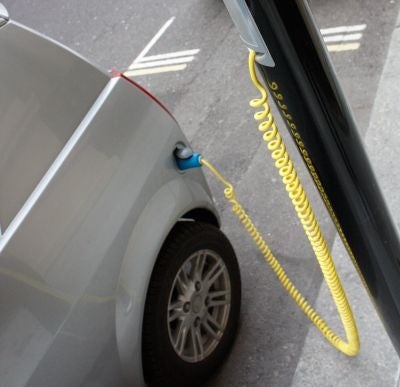Your support helps us to tell the story
From reproductive rights to climate change to Big Tech, The Independent is on the ground when the story is developing. Whether it's investigating the financials of Elon Musk's pro-Trump PAC or producing our latest documentary, 'The A Word', which shines a light on the American women fighting for reproductive rights, we know how important it is to parse out the facts from the messaging.
At such a critical moment in US history, we need reporters on the ground. Your donation allows us to keep sending journalists to speak to both sides of the story.
The Independent is trusted by Americans across the entire political spectrum. And unlike many other quality news outlets, we choose not to lock Americans out of our reporting and analysis with paywalls. We believe quality journalism should be available to everyone, paid for by those who can afford it.
Your support makes all the difference.Along with "range-anxiety", one of the fears dominating the discussion of electric vehicles seems to be "charge-anxiety" - how will consumers fare when their traditional stop at the gas station is replaced by a couple of hours plugged into the mains?
According to reports from Japan, at least one company believes it's got the answer.
Yokohama-based JFE Engineering recently demonstrated a new "super-rapid charging system" which is capable of filling a battery to 50 percent in three minutes, making it comparable to a stop at the gas station.
Current fast charging technology being rolled out by EV makers such as Mitsubishi and Nissan can normally charge a battery in between 15 and 30 minutes, meaning a slight adoption to the routine of most motorists.
However, the technology unveiled by JFE Engineering could reduce that unfamiliarity and therefore dramatically enhance the convenience of EVs, making them an easier sell to consumers, most of whom have never known anything but a gas station.
The only snag is likely to be that its charger is not currently compatible with the batteries in the Nissan LEAF or Mitsubishi iMiEV, although the company believes that the improved batteries of next-generation EVs are likely to be able to support their technology.
For many users, charging will be done at home, probably overnight, with the vehicle plugged into an ordinary household outlet.
But for users with longer distances to travel, a fast-charging infrastructure is critical for the successful adoption of EVs, making JFE Engineering's invention an important - and maybe even game-changing - device.

Join our commenting forum
Join thought-provoking conversations, follow other Independent readers and see their replies
Comments